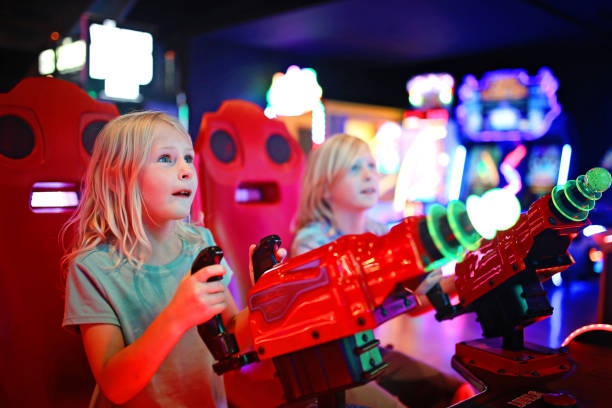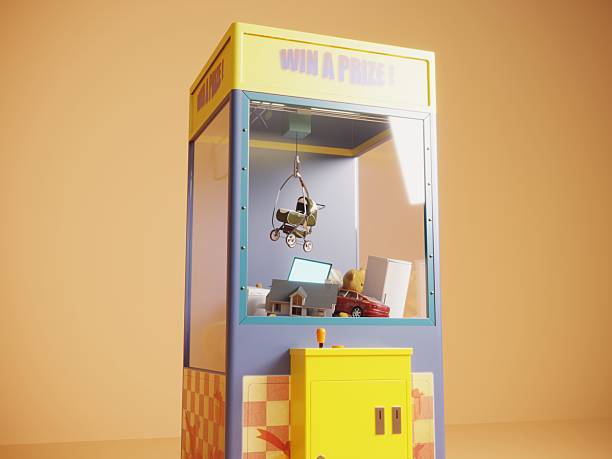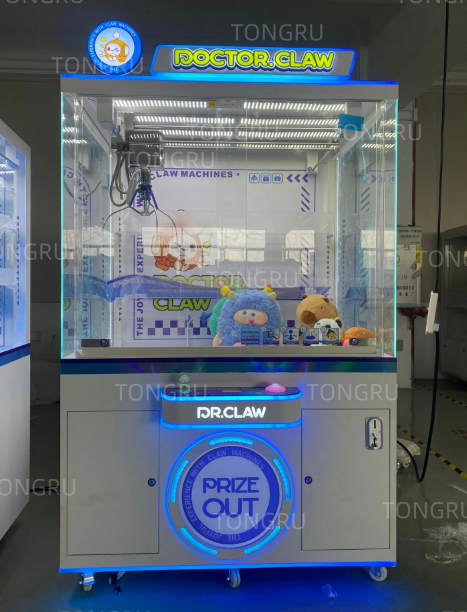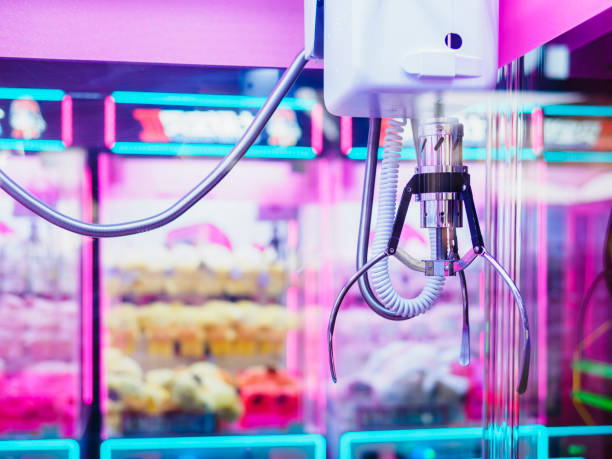Starting a claw machine business can be an exciting venture. But one major question can make or break your decision: should you buy a claw machine, or is it better to rent one? There are pros and cons to each approach, and understanding the options will help you make a confident choice. Let’s dive into what it really means to buy versus rent a claw machine, and how each option can work for different types of businesses.
Pros and Cons of Buying a Claw Machine
Buying a claw machine gives you ownership and control. You’re investing in an asset that could turn into a steady revenue stream, especially if strategically placed. But it’s essential to weigh both the benefits and drawbacks before taking the plunge.
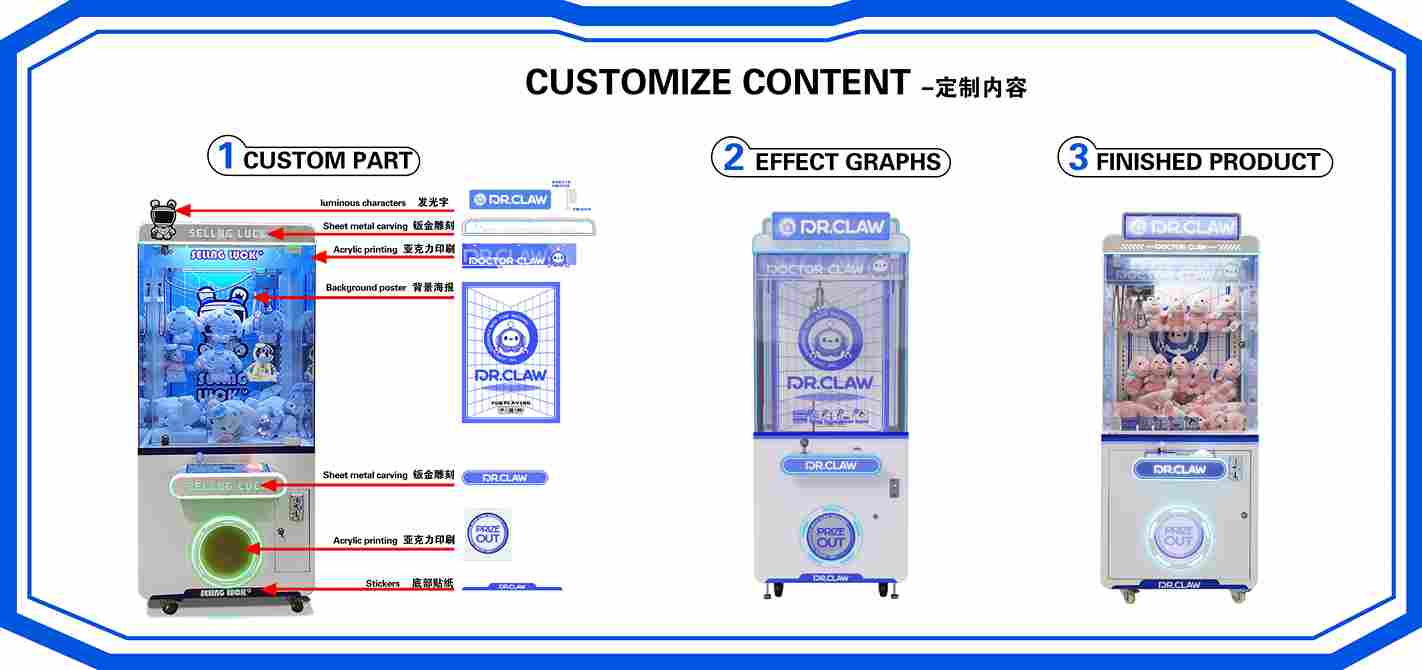
Pros of Buying a Claw Machine
1. Long-Term Cost Efficiency
When you buy a claw machine, you’re making a one-time investment that can pay off in the long run. Owning a claw arcade machine means you don’t have recurring rental costs, which can add up over time. For a busy location, the steady income from a well-placed claw machine could mean you recoup your investment within months.
2. Greater Control and Customization
Ownership gives you control over how the machine looks, operates, and is maintained. You can customize claw machines to fit your brand, adjust difficulty levels, and even select unique prizes that appeal to your customer base. This control can make your claw machine more attractive to players and keep them coming back.
Cons of Buying a Claw Machine
1. Higher Initial Investment
The upfront cost of buying a claw machine can be steep. New claw machines typically range from $150 para $5,000, depending on features and size. Used machines are cheaper but can still set you back anywhere from $100 para $2,500. While this may be manageable for an established business, it’s a considerable expense for a small start-up.
2. Maintenance Responsibility
With ownership comes responsibility. You’re in charge of keeping the machine running smoothly, which means regular maintenance, repairs, and occasional part replacements. This can be costly and time-consuming, especially if your machine sees a lot of daily play.
Pro and Cons of Renting a Claw Machine
For those looking to test the waters or operate short-term, renting can be an attractive option. It’s typically more flexible, with lower initial costs, though it also has its limitations.
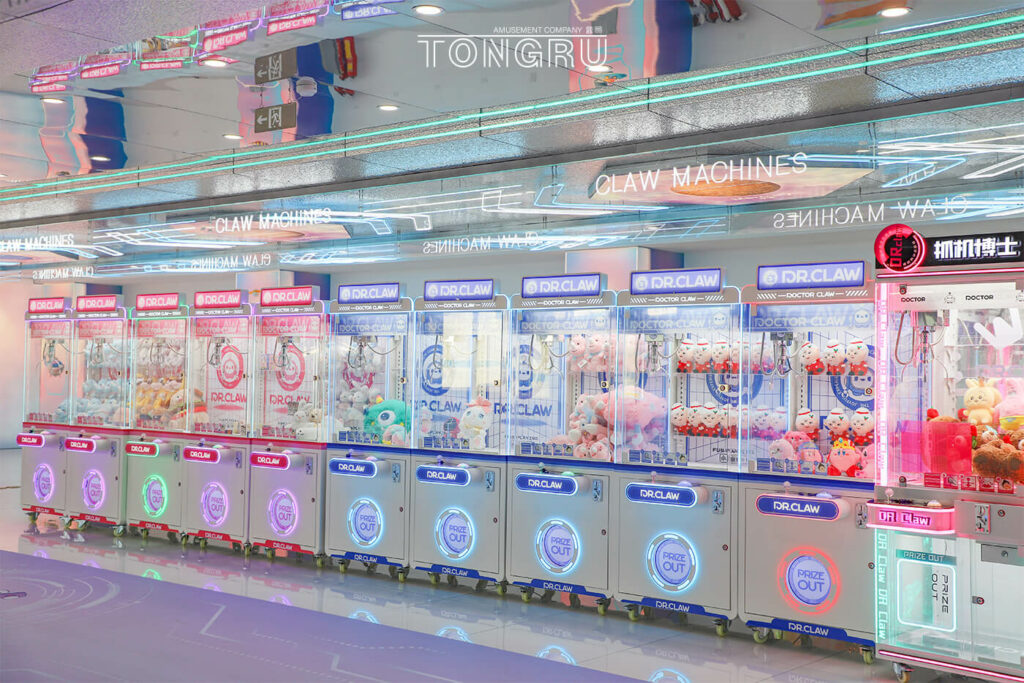
Pros of Renting a Claw Machine
1. Lower Upfront Costs
The claw machine for rent allows you to start without a significant investment. Instead of thousands, you might pay just a few hundred dollars a month for claw machine rental costs, making it much easier for small businesses or those new to the market.
2. Reduced Maintenance Responsibility
When you rent, the owner is usually responsible for maintenance and repairs, which can save you both time and money. Should your machine break down, it’s often the rental company’s job to fix it, allowing you to focus on running your business.
3. Access to a Variety of Machines
Renting can also give you the flexibility to try diferentes tipos de máquinas de garra over time, arcade claw machine rental or human claw machine rental. If one machine style doesn’t attract the right crowd, switching to another might do the trick. This option can be especially useful for seasonal events or temporary setups.
Cons of Renting a Claw Machine
1. Limited Customization Options
Rental machines often come as-is, which means limited room for customization. You might not be able to choose your prize selection or adjust machine settings, restricting your ability to tailor the experience for your audience.
2. Long-Term Cost Implications
While renting is initially affordable, long-term rental expenses can add up. Over a few years, the cost of rental payments could easily exceed what it would have cost to buy a machine outright.
Buying vs. Renting a Claw Machine: Which Is Better?
Each business type has unique needs, and the choice to buy or rent a claw machine can vary depending on your goals and resources.
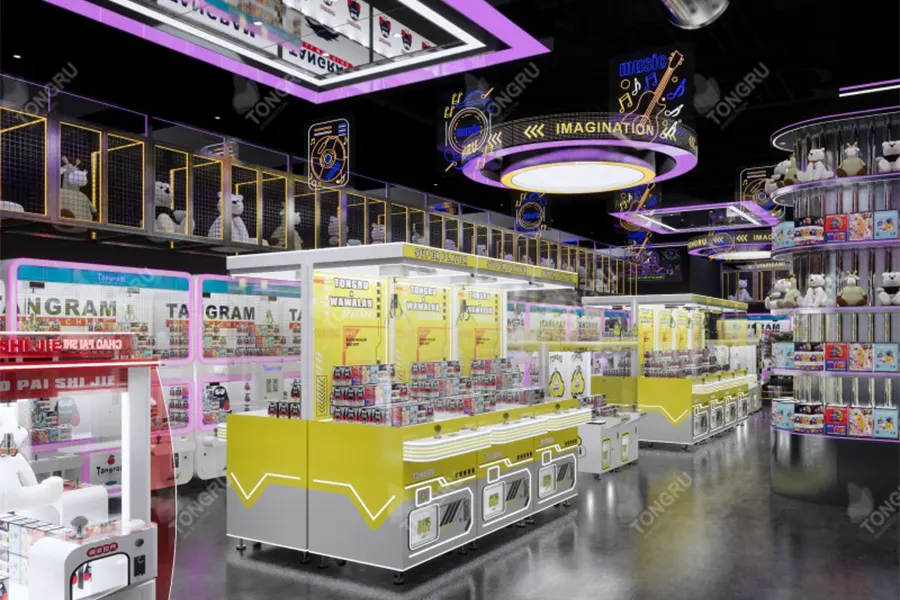
Small Businesses and Startups
For newer businesses, renting a claw machine can be a safer way to test the market without a large financial commitment. Renting allows flexibility to see if claw machines attract customers. No entanto, if you plan to make claw machines a permanent fixture, purchasing one might provide better value over time.
Established Arcade or FEC Locations
Established arcades and Family Entertainment Centers (FEC) often benefit more from purchasing machines. Ownership allows these venues to customize game settings, offer unique prizes, and fully control the experience, leading to better customer engagement and higher profits. With a steady flow of customers, owning a claw machine can maximize returns.
Event-Based Businesses
If you’re hosting pop-up events, seasonal fairs, or short-term activities, renting claw machines is usually the better choice. Renting keeps upfront costs low and eliminates the hassle of storing or reselling the machine once the event is over.
Testing the Market
Not sure if claw machines will be popular with your customers? Renting claw machines offers a low-risk option to test their appeal. If the machine proves successful, you can then consider purchasing one for long-term use.
Factors to Consider When Making a Decision
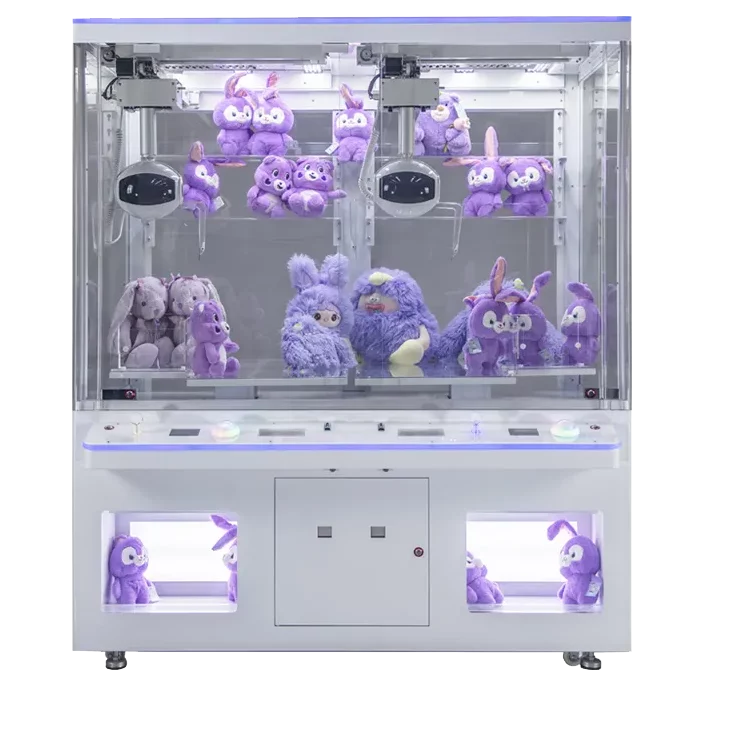
1. Orçamento
Your budget plays a crucial role in this decision. Assess how much you can afford upfront for purchasing versus how much you’re willing to spend monthly on renting. Remember, owning could be more cost-effective over time, while renting keeps your initial investment low. If you’re looking for the best claw machine to buy, consider options that offer durability, personalização, and reliable performance to maximize profits.
2. Business Needs
Think about your business’s specific needs. If you plan to use the machine occasionally or for short events, renting is likely the best choice. No entanto, if you’re in a high-traffic area with a steady customer base, buying might be more profitable.
- Event Duration: If your machine is for a short-term event, a rental can keep things simple. You’ll have a machine ready when needed, without the commitment of ownership.
- Frequency of Use: Claw machines used daily or frequently may justify a purchase, while those only needed occasionally could be better as rentals.
3. Localização
Foot traffic is a major factor in claw machine profitability. In high-traffic areas, buying a claw machine can yield substantial returns over time, as consistent foot traffic drives more plays. No entanto, for low-traffic or unpredictable locations, renting a claw machine offers flexibility, allowing businesses to adapt without the long-term financial commitment of purchasing.
4. Customer Demographics
Think about your target audience. Are they likely to play repeatedly, or will they be occasional users? Understanding customer habits can help you decide if buying or renting aligns better with your business strategy.
Conclusão
Ultimately, the decision to buy or rent a claw machine comes down to your business model, budget, and long-term goals. Buying is a great choice for businesses seeking control, long-term cost savings, and customization while you need to find a quality claw machine supplier. Por outro lado, renting provides flexibility, lower initial costs, and reduced maintenance responsibilities. Whichever path you choose, both options can open up exciting opportunities for profit in the claw machine industry.
Perguntas frequentes
1. How much does it cost to buy a claw machine vs. rent one?
Buying a new claw machine costs between $1,500 e $5,000, while renting can cost a few hundred dollars monthly.
2. Can I customize a rented claw machine?
Customization options are usually limited for rented machines, as they often come with set prizes and configurations.
3. What are the maintenance responsibilities for rented machines?
Rental companies typically handle maintenance, so you won’t need to worry about repairs or upkeep.
4. Is buying more profitable than renting in the long term?
Buying tends to be more cost-effective over time, especially if your machine is in a busy location with consistent use.
5. Which option offers a faster return on investment?
Buying offers faster ROI for high-traffic areas, while renting is ideal for short-term needs and testing the market.












